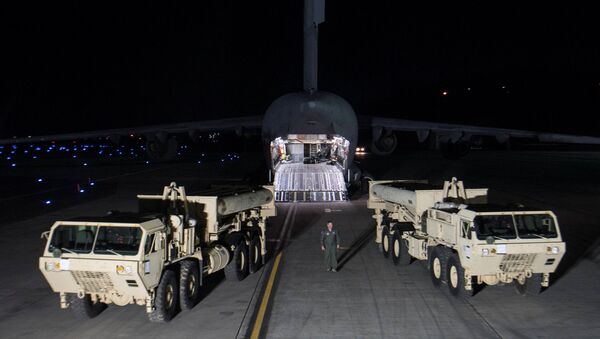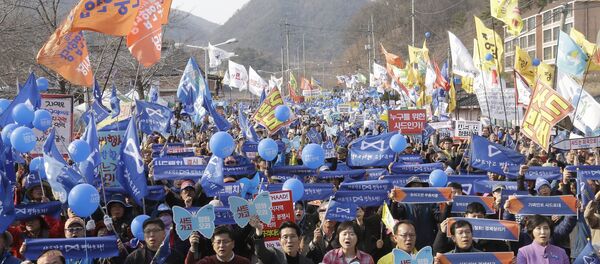Around 300 kilometers southeast of the capital city Seoul, 527 residents from Gimcheon and Seongju counties appealed to the Constitutional Court to stop the construction of the THAAD’s battery unit and the shipment of supplementary parts, Yonhap News Agency reported.
If granted, the injunction would remain in place until the legitimacy of the system is decided in a separate ruling, in a case brought last month by residents claiming THAAD violated their constitutional rights, as officials failed to properly assess possible health and environmental damage.
The system was confirmed to be operational in April by US Forces Korea.
As South Korea prepares for its first presidential election since former leader Park Geun-hye was impeached amid a corruption scandal, THAAD continues to spark public outrage in the country.
In late April around 300 protesters in Seongju clashed with roughly 800 police officers, as they attempted to block US Army oil transport vehicles from entering THAAD’s installation site, with some demonstrators sustaining injuries.
US officials have said that the system is in place solely to keep provocation from North Korea in check, though Beijing, which Washington has implored to be more aggressive in its stance towards Pyongyang, has said the system’s radar could be used to spy on China.
Beijing demanded an "immediate" halt to the system’s deployment, with Foreign Ministry Spokesperson Geng Shuang saying during a recent briefing, "We oppose the deployment of the US missile system to South Korea and call on all parties to immediately stop this process. We are ready to take necessary measures to protect our interest … China’s position on the THAAD issue has not changed."
Reporting on the South’s upcoming election last week, NPR contributor Lauren Frayer noted that "the frontrunner vows to renegotiate the US missile defense deal. President Trump has also angered many South Koreans by saying Seoul should pay for it."





